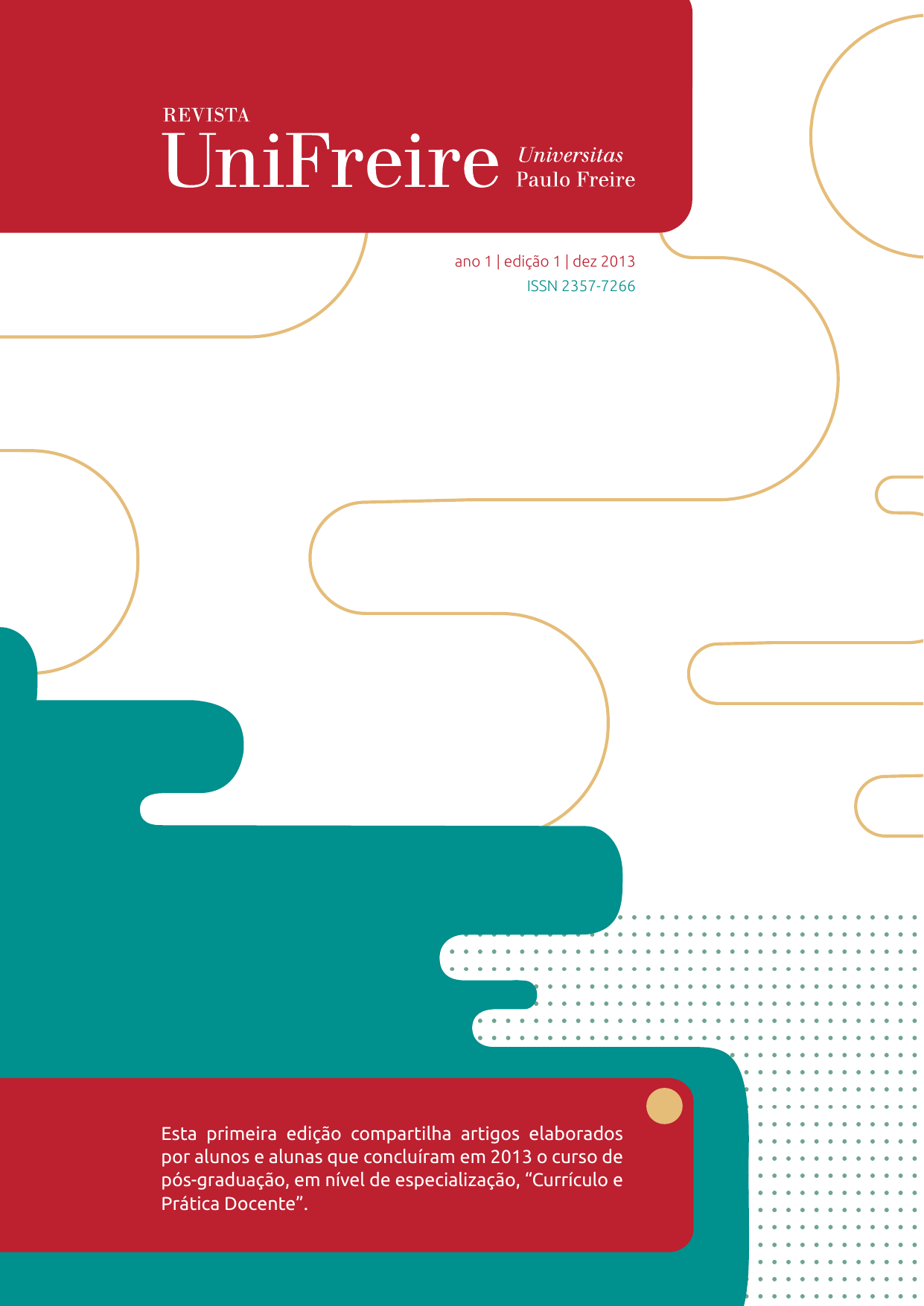THE POSSIBLE INCLUSION
sharing significant experiences in elementary education
Keywords:
Diversity, Intellectual disabilities, Elementary education, School inclusionAbstract
This article titled shows the results of a research intervention in a school Elementary School, located in the north of the city of Osasco, in greater São Paulo. Discusses the modification of attitudes and postures of students with learning disabilities and intellectual disabilities, with the intention of to enter and participate effectively in diverse educational process and that best meets your needs. The theoretical explanation pervaded the conception of diversity and intellectual disability, based on the approaches of the document Reorienting Curriculum Early Childhood Education and Elementary Education (2011), proposed by the Department of Education, which suggest diverse and differentiated teaching practices for these students. Weaves comments about teaching nine years established by the National Education Plan (2001), showing the importance of its implementation in educational systems. Through Mantoan (2011), we inferred about the necessity to move toward inclusion, whose realization requires the looks of all the school based on the pursuit of a higher quality work for disabled children or not. Finally, we present the methodology used for the research, as well as how to collect and analyze data. The results showed significant improvements in school performance, since students were more involved and interested in conducting participatory activities, indicating that the dynamics of making teaching was favoring inclusion school. Also points beyond the possibilities, limits and elements that hamper the process of learning in everyday classroom.
References
ANDRÉ, Marli; LUDKE, Menga. Pesquisa em educação: abordagens qualitativas. São Paulo: EPU, 1986.
AQUINO, Julio G. (Org.). Autoridade e autonomia na escola: alternativas teóricas e práticas. São Paulo: Summus, 1999.
BRASIL. Lei no 10.172, de 9 de janeiro de 2001. Aprova o Plano Nacional de Educação e dá outras providências. Diário Oficial da União, 10 jan. 2001. Disponível em: <http://pesquisa.in.gov.br/imprensa/jsp/visualiza/index.jsp?jornal=1&pagina=177&data=10/01/2001>. Acesso em 15.ago.2013.
BRASIL. Ministério da Educação. Secretaria de Educação Básica. A criança de 6 anos, a linguagem escrita e o ensino fundamental de 9 anos: orientações para o trabalho com a linguagem escrita em turmas de crianças de 6 anos de idade. Belo Horizonte: UFMG/FaE/CEALE, 2009.
FERNANDES, Sueli. Metodologia da educação especial. Curitiba: IBPEX, 2012.
FREIRE, Paulo. Ação cultural para a liberdade e outros escritos. Rio de Janeiro: Paz e Terra, 1981.
GRESSLER, Lori Alice. Pesquisa educacional: importância, modelos, validade, variáveis, hipóteses, amostragem, instrumentos. São Paulo: Loyola, 1989. (Realidade Educacional; 2).
MANTOAN, Maria T. E. Pensando e fazendo educação de qualidade. São Paulo: Moderna. 2001.
OLIVEIRA, Marinalva de et al. (Orgs). Reorientação curricular da educação infantil e ensino fundamental. São Paulo: Editora e Livraria Instituto Paulo Freire, 2011.
PERRENOUD, Philippe. Construir as competências desde a escola. Porto Alegre: Artes Médicas, 1999.
____________________. 10 novas competências para ensinar. Porto Alegre: Artes Médicas, 2000.
VYGOTSKY, Lev Semenovich. A formação social da mente. São Paulo: Martins Fontes, 2000.


